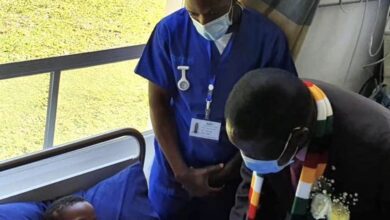The Zimbabwean passport is supposedly a symbol of escape, possibilities and access to better. But having a Zimbabwean passport also comes with being victimised at certain ports of entry. It sometimes means being ruthlessly and mercilessly interrogated at the borders of Western countries based on stereotypes. This has been a cyclical experience in the past two decades. We are numb to the dysfunction and grateful when it improves momentarily, suffering silently when it worsens.
While the constitution clearly guarantees a passport as an entitlement, the right cannot be easily enforced. The system seems to be deliberately mismanaged and designed to give you grief until you bribe your way through. The processes are slow and the processors are not helpful or kind. There are an unforgivable number of “children” that cannot secure these basic documents – children who are in fact adults now, orphaned during the Gukurahundi massacres of the early 1980s. You need a birth certificate to secure a passport, and in turn you need your late parents’ death certificates to get a birth certificate. Unless it is an election year, when there are more mobile registration exercises, these documents have not been easy to obtain for those who are victims of these unfortunate events. Many of them who want to cross borders in search of a better life have resorted to illegal border jumping. Those that do have basic documents have to jump through the next hoop, finding the money to pay for the application.
Zimbabweans based outside the country often apply for an emergency passport by paying $318, making this one of the most expensive passports in the world. The same “diaspora” that contributes a billion US dollars in remittances annually is being milked, assuming that they will find the money somehow in order to prolong their stay outside Zimbabwe. Just before lockdown in March, the government announced that locals too could pay for the quick passport at the same $318, whilst raising the price of the ordinary passport from 53 Zimbabwean dollars ($2) to 150 ($6 at official rate). The US dollar denominated one is the only real chance at securing a passport, even though the fee is equal to almost ten months’ salary for a teacher in the civil service.
Even so, many Zimbabweans are willing to sacrifice and pay top dollar, if only for the assurance that they can get one. The irony is that in the same government offices are many uncollected passports, and many Zimbabweans have unused or barely used passports, acquired just in case, yet never used because travelling costs money. They sacrifice for it because that passport is a promise. It is a promise of a better life beyond borders – any border – where at least there is running water, constant power, decent roads, schools and hospitals, and a proper stable currency.
Even the most privileged Zimbabweans are humbled when seeking a passport. Many athletes have needed emergency interventions to obtain them. Members of the legislature have no guarantee they can get one when they need one, and opposing parties have gladly and cynically united around the requirement of a diplomatic passport for every MP. Citizens are on their own and will remain victims of a system trying to control free movement – whether deliberately or by simple incompetence.
Foreign currency shortages may be the obvious scapegoat, but there is no political will in present Zimbabwe to ease the passport situation. Today in Zimbabwe, people have “acquire a new passport” as a new year’s resolution. My genuine thoughts and prayers are with them. For while the average Zimbabwean can always find a workaround for every other situation they fall victim to, on this one hands, and especially feet, are tied.
Source

